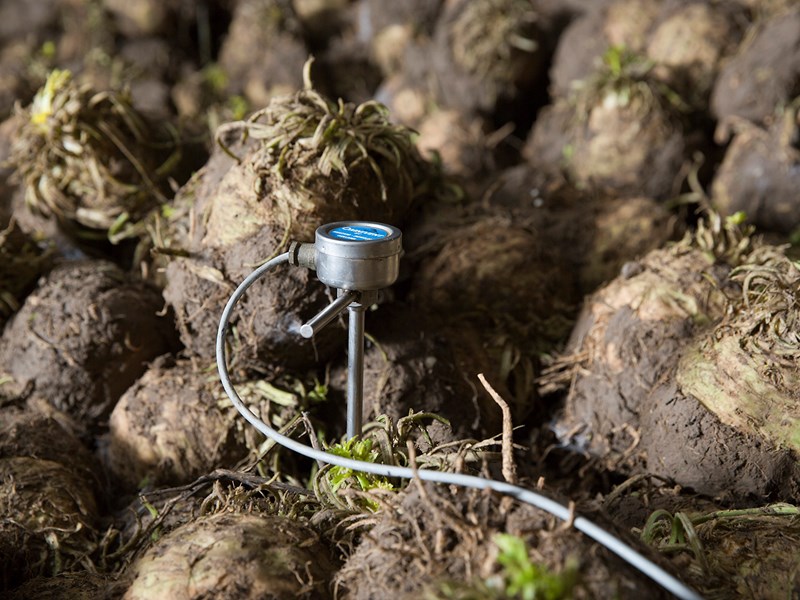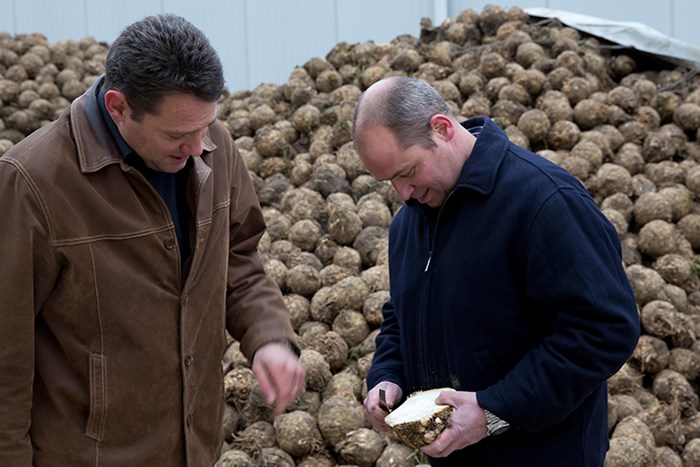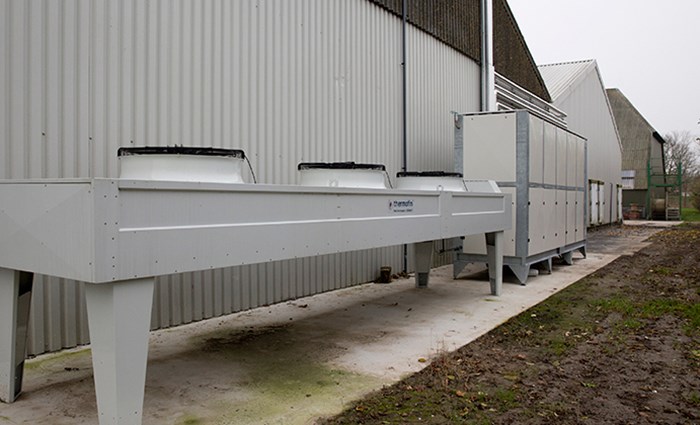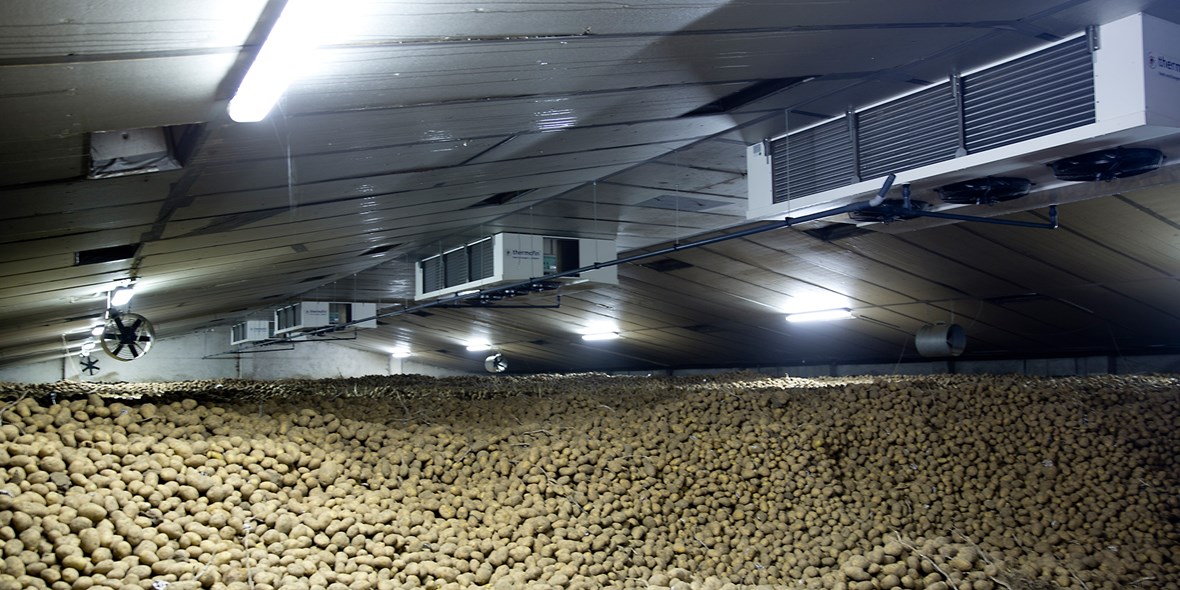
Better harvest thanks to sustainable refrigeration
Request by Novifarm: The potato processing industry requires growers to produce in a more sustainable and energy-efficient way. That is why we ask to replace the synthetic refrigerant R22 and to preserve the cooling capacity and the quality of the celeriac and potatoes.
At Novifarm in Numansdorp, owners Jan Boer and his brother-in-law store 900 tons of celeriac and 2700 tons of potatoes in three refrigeration units. The mechanical refrigeration system in these cells was replaced in 2014. ‘The previous system was thirty years old and I didn’t trust it anymore,’ says Boer. ‘I didn’t want to have to walk to the barn with sweaty palms wondering whether everything is still working. Or worry that the product has lost quality because the refrigeration system was switched off for too long for maintenance purposes. I wanted to avoid those kinds of situations.’
Innovative
The company is part of Novifarm, which consists of five farms in the region of Hoeksche Waard in South Holland, and it cultivates an area of around 750 hectares. The group of farms is known for being very innovative, and they use precision farming techniques to make their production more sustainable. For example, the farmers use satellite pictures to see exactly where they need to spread manure, which means that excess use of artificial fertilisers is now a thing of the past.
Novifarm cultivates potatoes, wheat, sugar beet, onions, celeriac and alfalfa. Most of the fields are suitable for growing potatoes and celeriac. Because the farm generally works with heavier soil, these products can be stored for longer.
’That’s why the potato processing industry is asking us to grow our crops in a more sustainable and energy-saving way’
Answerable to the manufacturers
The quality of French fries starts with the grower. A constant, uniform storage temperature helps to minimise the ageing process in potatoes because they then form fewer sugars. As a result, they require less post-processing, which leads to lower energy consumption and therefore cleaner production processes.

So quality is not just about flavour, colour, structure and shape, but also about the way the crop is grown. ‘More and more often, French fries manufacturers and fast-food chains have to justify how their suppliers and growers are producing their raw materials,’ says Boer. ’That’s why the potato processing industry is asking us to grow our crops in a more sustainable and energy-efficient way.’
Energy-efficient and environmentally-friendly cooling
One of the adjustments that Boer made was to replace the synthetic R22 refrigerant used in the farm’s refrigeration systems. Ammonia was found to be an ideal replacement. This natural refrigerant is energy-efficient, environmentally-friendly and suitable for heavy-duty refrigeration systems that can refrigerate root vegetables to 1 degree. The refrigeration capacity had to be at least the same, as did the quality of the root vegetables and the potatoes.
For the best air distribution, EQUANS fitted the new refrigeration system with energy-efficient auxiliary ventilation. ‘We know a lot about storage, but the technical side, the operating system, was new to us,’ says Boer. ‘But we had great confidence in EQUANS, and rightly so. It’s not for nothing that we’ve always got on well together.’
Air between the potatoes
The new refrigeration units reduce the loss of fluid in the stored products, so the quality is preserved for longer. ‘Eighty percent of a potato is fluid,’ explains Boer. ‘A good consignment of potatoes loses approximately 4 percent of fluid when stored from September through April. That’s a 108-ton loss of fluid in the total storage amount of 2700 tons of potatoes. The trick is not just to refrigerate in an energy-efficient way but also to limit the loss of fluid.’

‘The ideal storage temperature for the types we grow is 6.8 degrees, but the outside air temperature is never constant. In fact, the weather is becoming more and more unpredictable and that’s a risk for the grower. But we can overcome that with mechanical refrigeration. A constant temperature in the storage cell, supported by a ventilation system that blows air between the potatoes, results in the lowest loss of fluid and therefore a better-quality potato.’

Bond of trust
‘The first trial with the potatoes was very successful,’ continues Boer. ‘Due to the high temperatures in November I had already used the cooling for two weeks to reduce the temperature of the potatoes from 11 to 8 degrees.’
‘The temperature of the celeriac dropped from 11 degrees to 5 degrees in just one week. For the root vegetables, we’re working on the final adjustments in the operating system. We’re monitoring the temperature on the computer and if there are any changes, EQUANS can adjust them remotely. It’s fascinating to see how EQUANS is continuing to develop its technology based on our feedback.’